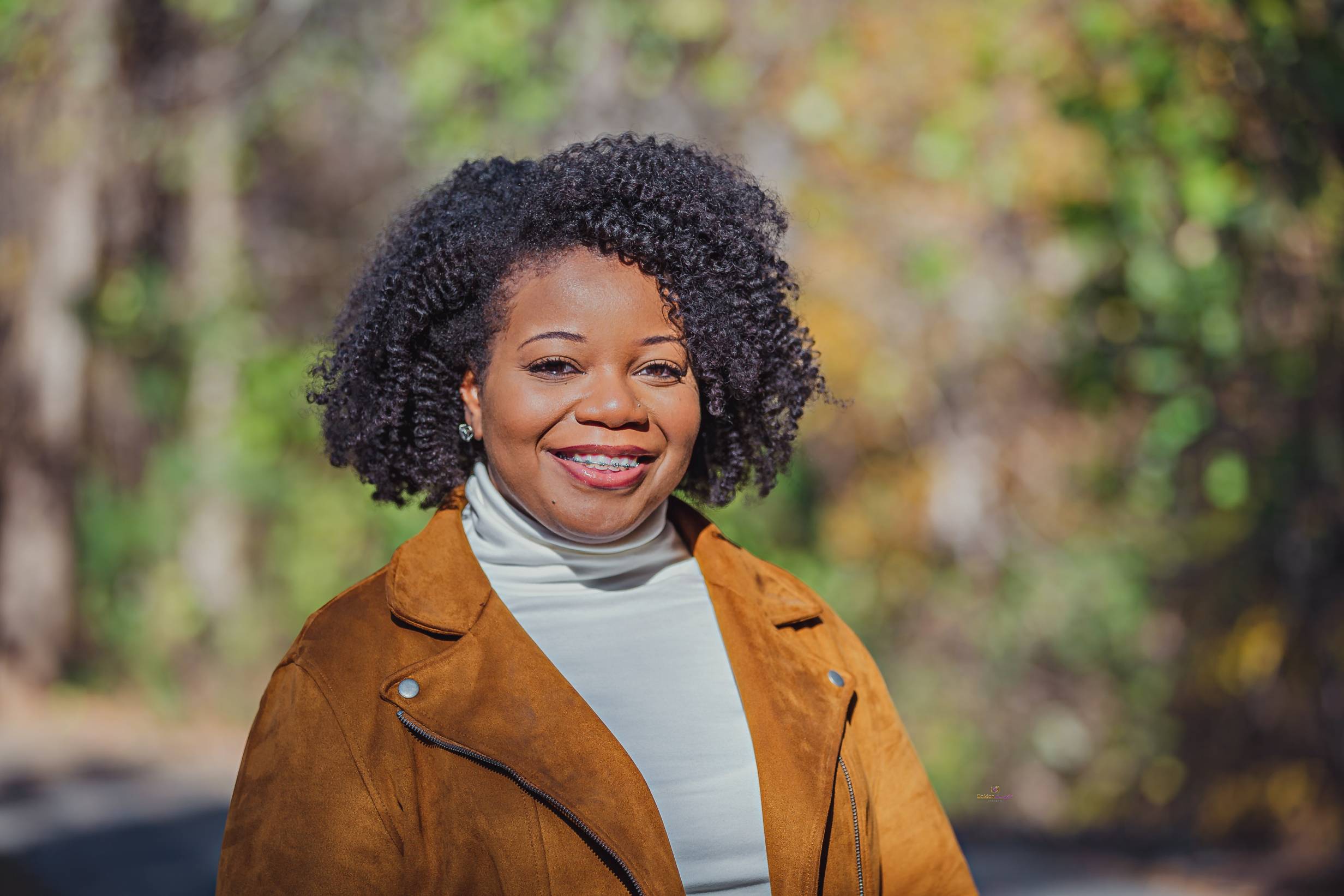“And anything I have accomplished, I did so not in spite of being a black woman, but because I am a black woman.”
― Gabrielle Union, We’re Going to Need More Wine
As an African American writer, wife, mother, caregiver, anti-violence activist and organizer, I find myself looking more and more these days at opportunities for introspection and reflection to assess my own engagement with the world, and the impact of such engagement on me. So, when I came across this “The Pedestal Experience” flyer on Facebook, I was excited, yet curious. From my assessment, pedestals are often the support for lofty, pathbreaking, yet often isolated figures who stood out because they often stood alone. Dare I enter in? Let me examine this further, I thought.

Tekita Bankhead, MS, BSN, RN and 2018 Winner of Central Illinois Business Magazine’s Forty Under 40 is the Creator/Editor-In-Chief of The Pedestal Project and host of “The Pedestal Experience,” a Brunch Series for Black women designed to cover topics central to Black women’s lived experiences with featured guest speakers. The first brunch will be held on Saturday, February 9, 2019 at 9:30 a.m. at the Champaign Public Library in the Robeson Pavilion Rooms A and B.
The theme of the first brunch will be “(Im)perfect Black Woman,” a candid discussion on perfectionism. According to Bankhead, “Black women may struggle with perfectionist tendencies and may be completely unaware of the way it manifests in their personal and professional lives. Our panel of speakers will share their stories while offering strategies for breaking the cycle of perfectionism.”
As I further researched the Pedestal Project and interviewed Bankhead, I learned more about Bankhead’s journey to creating this “online space and organization devoted to uplifting Black Women through validation, restoration, and affirmation.”
Smile Politely: In your introduction to The Pedestal Project, you wrote quite candidly and movingly about meeting with your therapist where you unintentionally opened up about “this overwhelming need to prove myself.”
You write:
“I felt I had to prove myself in romantic relationships so guys would fully commit to me.
I felt I had to prove myself in professional spaces so that the old white men who dominated the field of prevention work would respect my credibility.
I felt I had to prove to myself that I was strong.
I had to prove to others that I am a loving a loyal friend.
I had to prove to my students that I was an authority figure and not their peer.
My brain kept screaming the same messages over and over.
Say the right things. Do the right things. Be the right things.”
Your therapist responded: “Tekita, have you ever realized that you put everyone and everything in your life on a pedestal except for you?”
How did you move emotionally and intellectually from your own revelations in therapy to deciding to host this brunch series?
Tekita Bankhead: I had friends and colleagues alike who were putting others’ needs before their own, sometimes to the detriment of their well-being. There were Black women who felt hesitant to share their accomplishments too visibly for a fear of being seen as boastful or an even deeper fear of being undeserving. There were Black women like me fighting every day to live an authentic life that drowned out the ugly truths the world tried to feed us about our very existence. I knew I couldn’t be alone. And thus, the idea of The Pedestal Project began to form.
In February 2018, The Pedestal Project began as an online blog that was designed to uplift Black women through restoration, validation, and affirmation. Our mission is to restore the wholeness, validate the experiences, and affirm the divine gifts of all Black women. Our first iteration of this vision is “The Pedestal Experience” which is a brunch series for Black women. Each brunch workshop will feature Black women speakers, vendors, and creatives who are experts on the selected topic and can help facilitate impactful dialogue in an intimate and interactive arena.
SP: Stressors and pressure “to prove yourself” in a variety of areas above seem to be some of the causes of your own perfectionist tendencies and tendencies of Black women you know.
How, though, does the perfectionism of Black women differ from perfectionism in women of other races? Why is this “a black female phenomena” as opposed to just a “female phenomena” impacting all women?
Bankhead: I absolutely believe that perfectionism can affect anyone, but from my anecdotal findings, Black women may sometimes struggle with finding the clear boundary between high achievement and perfectionism. I think this affects Black women uniquely because of the societal expectations that are placed on us.
Black women are often expected to be innate nurturers, highly skilled, and significant contributors of intellectual thought with very little room for error, inconsistency, or evolution.
In an American context, we are expected to give to a society that often does not protect us, respect us, defend us, promote us, uplift us, pay us, or believe us, so we rely largely on ourselves to support ourselves.
Black people often have to do twice as much work to get half as much reward. In some arenas, I honestly feel the need to work at least three times harder, even if it is a subconscious belief.
If we do not fit a very narrow archetype of what a Black woman should be, we risk our professional and personal well-being. As a result, we see increased levels of fatal and debilitating diseases in Black women such as anxiety, depression, maternal mortality, and heart disease. It’s hard for me to think of any other group who experiences that level of imbalance in support.
SP: Does the tense political and cultural climate in America today exacerbate Black women’s perfectionism? If so, how exactly?
Bankhead: It certainly does. Most recently, I can recall observing social media responses to Black women sharing personal stories of sexual assault and trauma and being met almost immediately with efforts to discredit, blame, and silence them.
Why do I have to be seen as perfect to be deserving safety and autonomy over my body? It’s just disturbing and disheartening to see the world respond to Black women and girls like that time and time again.
I also think about Black women in the political arena. Whether it is through voter suppression, insulting media coverage, or mudslinging, it has become abundantly clear that any Black woman desiring to make a significant impact on any level of government will be subject to intense scrutiny, abuse, and discredit at levels far beyond any of those directed toward mediocre leaders of our past and present.
Seeing that around us absolutely has a damaging effect on the psyche of Black women, and it’s important that we clarify who we are since that type of societal treatment will take quite a while to undo.
SP: What are the consequences of perfectionism for Black women?
Bankhead: In addition to many of the medical consequences mentioned above, one of the biggest consequences is a negative self-perception rooted in unrealistic and unreasonable standards. These can sometimes lead into Black women placing a tremendous amount of pressure on themselves and eventually having feelings of stress, anxiety, and guilt.
SP: Why does a brunch format with panelists lend itself to addressing this issue among Black women?
Bankhead: I’m a firm believer that there’s power in being in a room of Black women with shared experiences. It’s a safe place to recognize that we are not alone and that there are ways to break unhealthy cycles in our lives.
I was careful to curate a panel of Black women experts with an array of experiences related to perfectionism, both clinical and personal. My idea for the brunch format seemed like a perfect marriage for many of my passion areas. I love brunch (and I don’t think I’ve met a single person who doesn’t)! I love educating! I love supporting Black women! What better way to combine the three?
SP: Can you say more about the format/schedule of the day?
Bankhead: The most important thing guests can expect is a rejuvenating space for Black women filled with fellowship, food, and valuable information. My panelists consist of Dr. Deidre Weathersby, a licensed psychologist; Dr. Dynesha Grissom, a post-doctoral psychology resident; Mrs. Kimberly Otchere, Student Affairs practitioner with an educational background in social work; and Ms. Krystal Andrews, Student Affairs practitioner and doctoral student.
Guests will also be served delicious brunch-themed refreshments prepared by our featured caterer, Chef Carrie Anderson, an Executive Chef at the University of Illinois and desserts prepared by Kreative Kupcakes. We will also have goods for purchase from our vendor, Taquisha Terry. We are working to make sure this will definitely be an event to remember!
SP: What do you hope participants take away from this Pedestal Experience Brunch?
Bankhead: In line with the central mission of the Pedestal Project, LLC, I ultimately want guests to leave restored, validated, and affirmed. I hope that they feel empowered to make healthy changes and also with a sense of connectedness to other Black women who understand their feelings.
You can learn more about The Pedestal Project here.
Photo by BoldoNbeautiful Visuals








